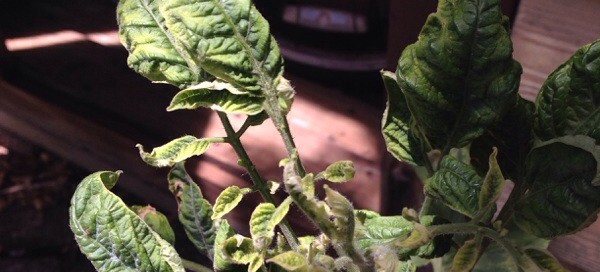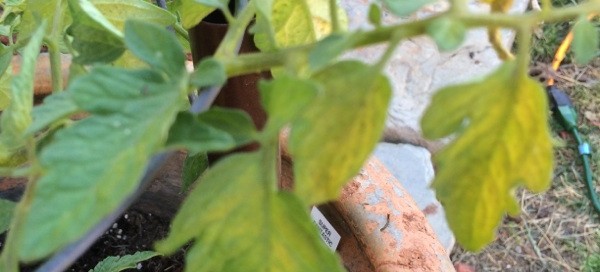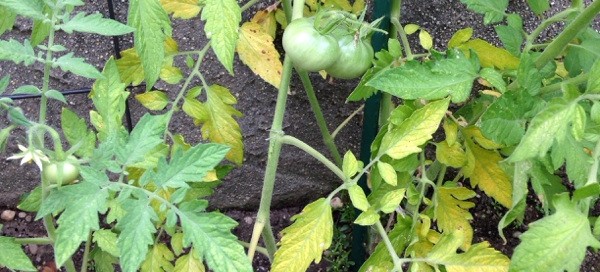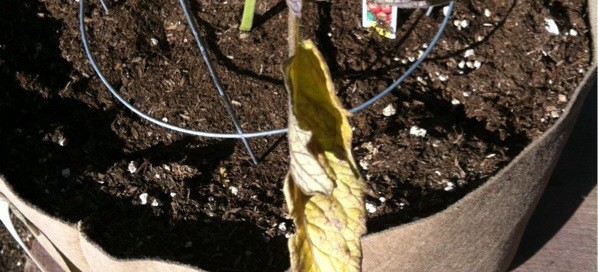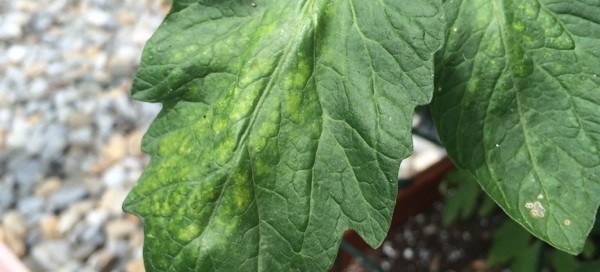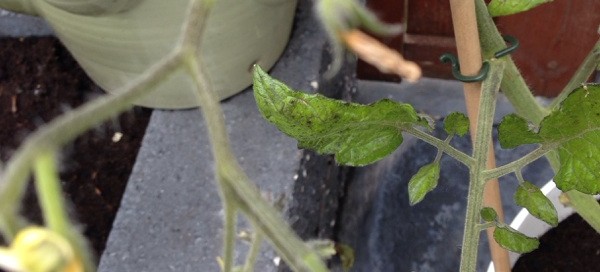Tomato Nutrient Deficiency
Yes, this could be symptoms of too much water, or watering too frequently - we noticed its in a pot, so make sure water is draining from the pot every time you water. Tomatoes are heavy nutrient feeders at certain stages of growth, and nutrients can be difficult to provide if the plant is not growing in ideal conditions. Here is a link (from the University of CA) all about Tomatoes that will help, but in short Tomatoes need 6-8 hours of full sun each day, and prefer to be watered (at soil level not overhead). Since your plant is in a pot, you may eventually need to water more often as it continues to develop a bigger root system, do not over-water by watering too frequently as this makes for unhealthy roots that can't take up the nutrients from the soil. When your plant is well on it way with flowering and fruit you should fertilize it with an all purpose vegetable fertilizer - consider a slow release fertilizer so that the plant gets a continuous feed for this period of heavy use. Follow the label instructions when fertilizing. http://www.ipm.ucdavis.edu/PMG/GARDEN/VEGES/tomato.html
